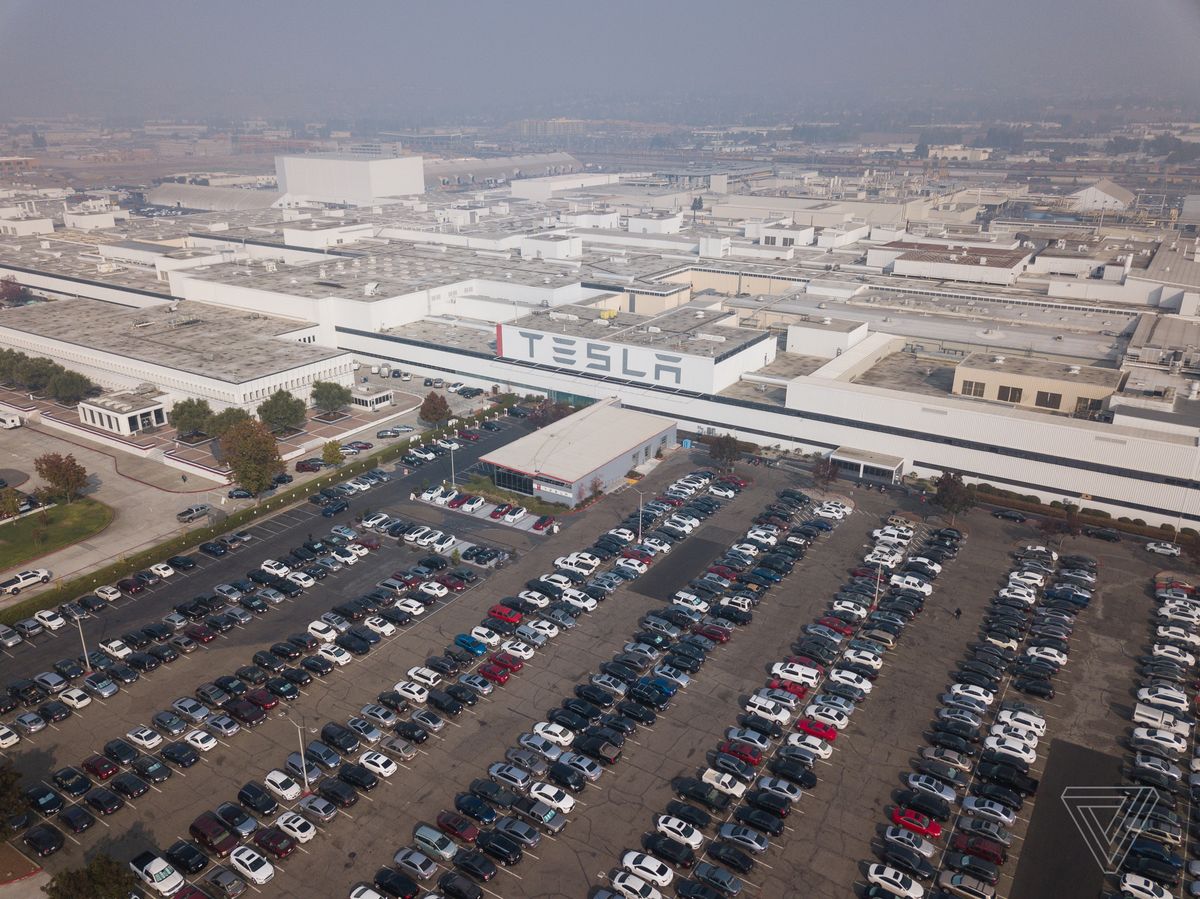Over half a dozen current and former Tesla employees claim that aggressive production goals have forced workers to take shortcuts when manufacturing its cars in a new report from CNBC. They also accuse Tesla of creating harsh working conditions, especially for employees working in the “GA4” production tent where assembly is not fully automated.
Employees claim that electrical tape was used to patch cracks on plastic brackets containing electrical components, and that cars would sometimes pass through the production line while missing bolts, nuts, or lugs. The employees even provided CNBC with photographic evidence to support their claims. They also claim that Tesla encouraged its employees to work in harsh conditions that were exceptionally hot and dry during the day and cold and wet during the night.
The accusations have emerged just weeks after Tesla set a new record for manufacturing and delivering its cars. In the second quarter of 2019 the company produced 87,048 cars, and delivered around 95,200, beating analyst expectations. However, CNBC’s report suggests that Tesla has had to cut corners in order to reach these production levels, harming its cars’ built quality in the process.
The accusations center around Tesla’s infamous GA4 production tent. The makeshift assembly line was first constructed as a temporary measure to hit Musk’s ambitious target of producing 6,000 Model 3’s a week by the end of June last year. However, over a year later, the temporary production tent is still in use. Tesla has already been fined almost $30,000 for safety hazards relating to the tent. The tent is reportedly responsible for about 20 percent of all Model 3 production.
Current and former Tesla employees claim that pressure to keep production moving inside the tent means that quick fixes are used when components are damaged. The cold weather can sometimes break plastic components, and when this happens they claim that electrical tape bought at Walmart is used to secure components, and provided photos of where it had been used. Responding to the images, Tesla told CNBC that many parts come with tape pre-applied from manufacturers, and that applying electrical tape is not approved procedure.
The employees also allege that cars would sometimes move down the production line with bolts, nuts, or lugs missing, because there wasn’t enough time to fully install all the components. “They would rather keep cars moving than stop the line and be seen as a bottleneck to production,” reports CNBC. One photograph provided showed a nut missing from a power supply distribution block, which could heat up and cause problems if it’s not properly secured.
Temperature is also cited in CNBC’s report as being a problem within the production tent, which is located outside the Nevada-based Gigafactory. Fans, which are supposed to keep the tent cool, are infrequently used and are often ineffective, leading to instances of heat rash and heat exhaustion. The tent also gets cold at night, so employees need to wear multiple layers. Some have even tried to warm themselves using heat lamps meant for manufacturing.
:no_upscale()/cdn.vox-cdn.com/uploads/chorus_asset/file/13590430/bfarsace_181116_3101_gigafactory_0037.jpg)
CNBC spoke to two former employees on the record for its report, and corroborated their account with six other current and former employees who asked to remain anonymous. The two named individuals, Carlos Aranda and Maggie Aranda, both stopped working at Tesla in June of this year. Maggie Aranda has previously criticized Tesla in comments made to The Guardian for firing her when she was using her cellphone on the job to contact her husband, who was on medical leave at the time.
In a statement carried by CNBC, Tesla called the anecdotes “misleading” and said that they were unrepresentative of what it’s like to work at Tesla. “Dedicated inspection teams track every car throughout every shop in the assembly line, and every vehicle is then subjected to an additional quality control process towards the end of line… This applies to all areas of the factory, including our operations at GA4.”
“We work hard to create a work environment that is as safe, fair and fun as possible, and it is incredibly important to us that employees look forward to coming to work every day. In fact, we have a large number of employees who request to work on GA4 based on what they hear from colleagues and what they have seen first-hand.”
